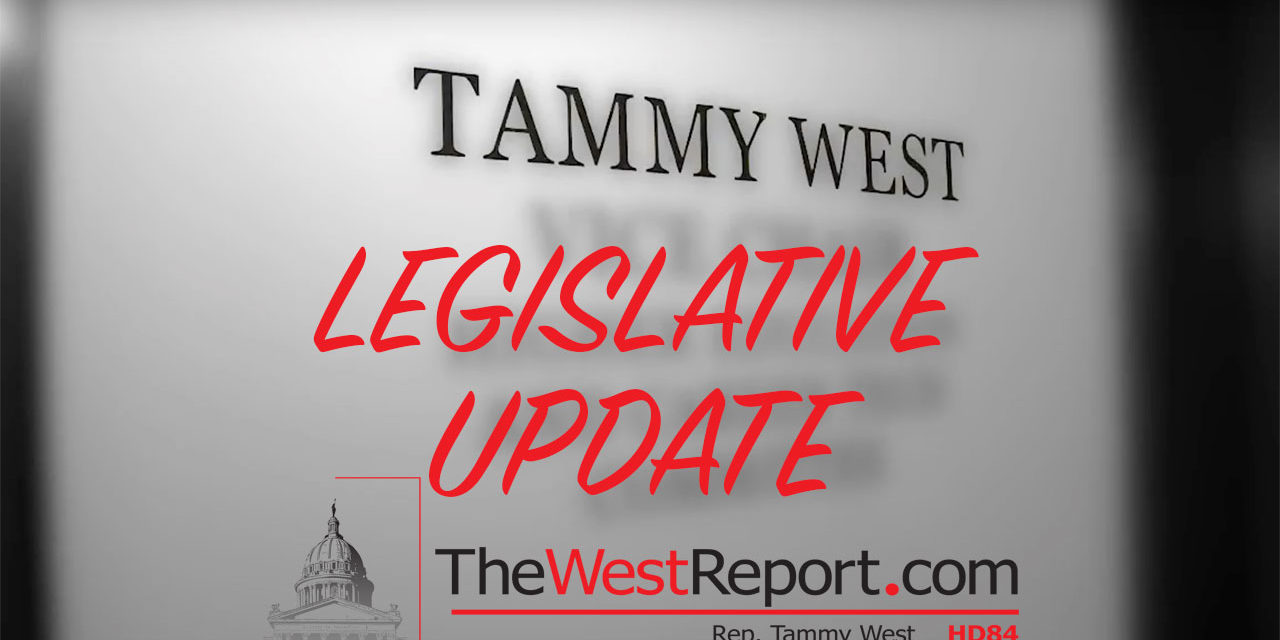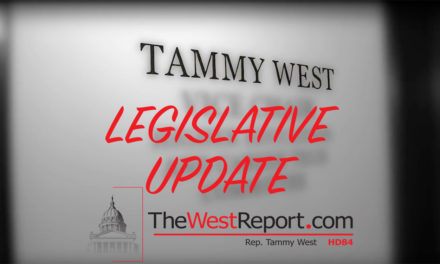OKLAHOMA CITY – State Rep. Tammy West, R-Oklahoma City, today commented on legislation that improves and revises the state textbook adoption process.
West authored House Bill 3466, which was signed into law by the governor. Implementation of the changes begins in March 2021.
“This law builds upon the team of experts providing detailed, expert analysis to state and local textbook committees so all educators in Oklahoma have access to high-quality instructional materials to reach each and every child they serve,” West said. “This also increases public transparency of the textbook adoption process, improving parental oversight over which curriculum is selected for their child’s school and detailing how that material was selected. It also gives parents an increased role on the committee.
“The transparency will also allow school districts that are unable to devote the resources and expertise to the curriculum selection process to be more confident in relying on and easily accessing the state-level rubrics or to choose curriculum outside of the state list if they so desire. With better information, districts will be able select curriculum that helps them best meet the needs of their students and that helps improve their academic outcomes.”
HB 3466 modifies the membership of the State Textbook Committee, which will be made up of 13 members with the state superintendent serving as the chair. Two of the members will be parents of public school students. The other members will need to hold Oklahoma teaching certificates.
Currently, the committee is made up of 13 members appointed by the governor on advice and consent of the Senate, but members have to have expertise in only one of the subjects that will be reviewed during their term. An appointee, for example, may have math expertise but may be asked to review science, arts and social studies textbooks. Members are allowed to recruit help from colleagues to review the pallets of information they receive, but there is no formal process for how those colleagues are selected and no incentive for volunteering.
HB 3466 changes this and creates subject-specific review teams, selected through a formalized application process, to support the existing committee to provide additional expertise. The measure directs the State Department of Education to provide administrative services to the committee, such as developing the application and adopting the rubric the review teams will use to review and recommend textbooks.
West said this will ensure the best experts in a specific field are chosen to review textbooks in that subject area. The teams would meet after state academic standards in their subject area have been reviewed and updated, and then would make recommendations to the committee, which ultimately would determine the rating for each curriculum reviewed.
The measure also outlines procedures for a local textbook committee to adopt a textbook not reviewed by the State Textbook Committee.
HB 3466 also increases the transparency and efficiency in the adoption process by requiring detailed explanations for textbook rubric scores, and it improves collaboration between the SDE and the State Textbook Committee while eliminating redundancy. The teams’ recommendations are to be made available to the public on the State Textbook Committee’s website.
Under the new law, the state superintendent of public instruction will serve as the chair of the committee beginning March 31, 2021.
West said making the elected state superintendent the chair improves continuity between state academic standards, assessments and curriculum. This will ensure teachers have the tools necessary to see academic outcomes rise. She said the SDE and the chair and vice chair of the current committee all expressed a desire to see significant improvement of the textbook recommendation and selection process, and this bill accomplishes that.
West said the change in law is research driven.
“Research continually shows that curriculum selection has a large and statistically significant effect on student outcomes,” she said. “If we expect academic outcomes to rise, we must have a textbook vetting process that aligns with the recent increases in expectations of our state academic standards. Teachers must have resources upon which they can rely to teach these standards, and districts must be confident that when they select from the state-adopted list that they are receiving materials that have been thoroughly vetted.”
West pointed to Louisiana, which has pursued similar changes and seen impactful results. A recent review by EdReports of 17 states shows that of those that have some degree of control over approving high-quality curriculum, only Louisiana approved high-quality K-8 curriculum. The same study identified Oklahoma as having a high level of control but approving only three highly rated curricula and 10 weakly rated curricula.
West said the law is meant only to strengthen the current State Textbook Committee not fault it.
“The current process simply does not provide for an intensive review and vetting,” she said.
Currently, textbook vendors travel to Oklahoma for a multi-day meeting where the State Textbook Committee sits through presentations from each. The committee then votes on which textbooks to add to the list of those that will receive a state contract.
The current rating system is a simple yes or no. This bill creates a three-tiered rating system for additional differentiation in the scoring.
The current rubric is not subject specific nor robust and does not allow for comments or justification from the committee. This bill allows comments so that school districts have additional information when choosing from the adopted textbook list. For example, a particular curriculum might be very strong overall but have in a weakness in a particular grade. In the current process, there is no way for districts to know this. By providing justification, the committee can note that districts will need to supplement the curriculum in that grade due to the gap. The bill also makes the textbook committee’s process and the materials they review subject to the state’s Open Meetings Act and Open Records Act.
-30-





